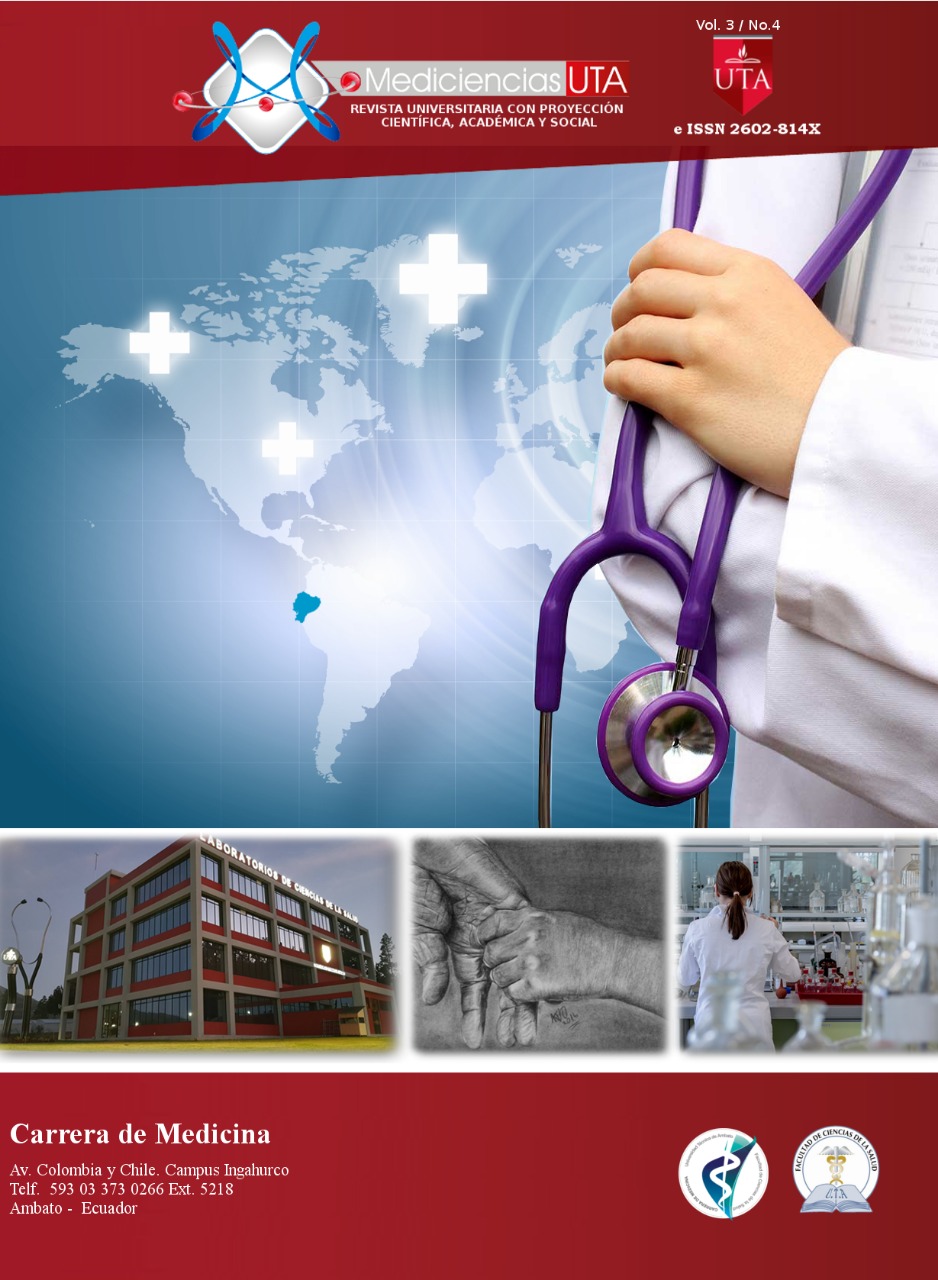Score revisado de trauma como predictor de mortalidad en accidentes de tránsito
Contenido principal del artículo
Resumen
Introducción:La presente investigación se basa enla aplicación de la escala Revised Trauma Score (RTS) basada en escala Glasgow, frecuencia respiratoria y presión arterial sistólica que pronostica de acuerdo al cálculo de puntuación posibilidad de mortalidad en pacientes atendidos por accidentes de tránsito en el Servicio de Emergencia del Hospital General Latacunga, Enero –Marzo 2017.
Objetivo: Aplicar la escala RTS para mejorar la calidad de la atención de pacientes con trauma
Metodología: Se realizó un estudio descriptivo prospectivo, cuali-cuantitativa no experimental y transversal, utilizando como instrumentos de investigación fichas con la información de historias clínicas y hojas 008 de Emergencia..
Resultados: La muestra calculada fue 87 pacientes; de los cuales 64,3% correspondió al género masculino predominando las edades entre 19 a 59 años. El mayor porcentaje de lesiones fue trauma de cabeza (30%), seguido miembros superiores-inferiores (23%). La puntuación de la escalaRTS demostró 31% tenían traumas severos que necesitaron atención inmediata. En Emergencia la mortalidad fue 32%, demostrando su alta incidencia en los accidentes de tránsito.
Conclusiones: La escala RTS es un buen predictor de mortalidad, ayuda al manejo médico y facilita la aplicación de guías clínicas para traumatizados, evitando substraje y sobretriaje, con atención médica inmediata.



